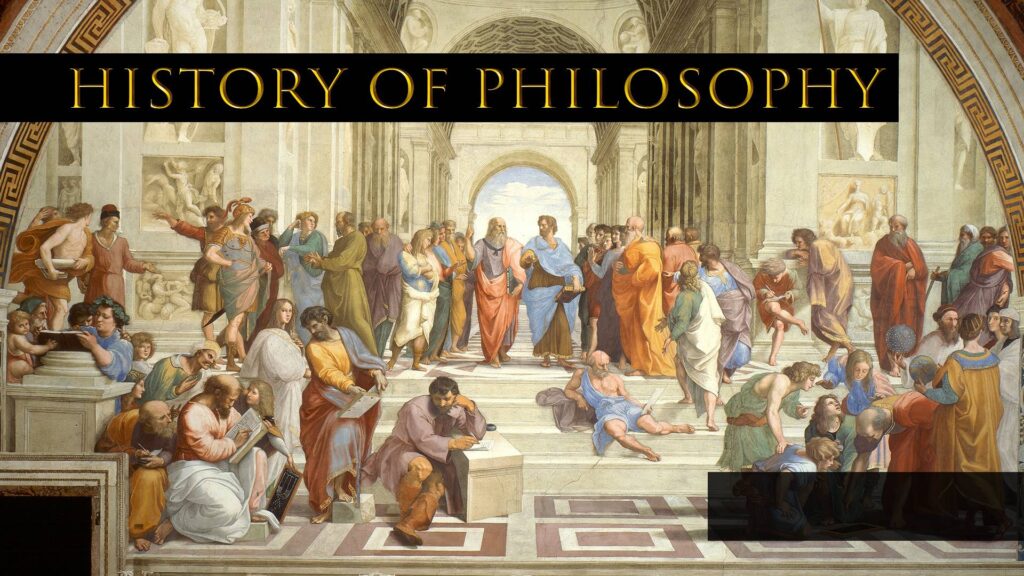For a long time, philosophy covered all aspects of knowledge. With the development of knowledge, the different sciences took their own body and became autonomous. Philosophy specialized without demerit in its ability to systematically address the broader and more general concepts of the world and man.
Like religion and mythology, philosophy seeks the essence of things, the origin and cause of fundamental phenomena, the explanation of their properties, movements, effects, and finality. Philosophy is distinguished by being a rational, coherent and rigorous search. It is a systematic effort to find answers, to solve the central enigmas of existence.
Philosophy is a set of theoretical elements that cannot fail to reflect the social reality of each era and historical situation. As a reflection of social reality, philosophy suffers from the impact of contradictory social, economic and political interests. Even escapism, the attempt to avoid the reality of society, is a way of expressing certain interests.
Concept, origin, and method of philosophy
The word philosophy is made up of two Greek words, phileo: love and sophia: knowing or wisdom. The textual meaning is “love of wisdom”, but does not convey the main meanings of philosophy. Different definitions are known, as well as the reluctance of some philosophers to give a definition of philosophy.
On the other hand, the content of philosophy has been modified from its appearance to the present day. We must understand Philosophy as a discipline of generalizing concepts about the world and the place that man occupies in it; be understood as an attempt to know the realities and the essence of things in life and man, to know the meaning and purpose of existence.
Philosophy appears at the beginning of civilization, that is, during the predominance of the Asian mode of production or slavery in China, India, Egypt and Greece. Philosophy arises in Greece in the century (VII BC).
In the preceding social formations, which correspond to the times of the savage state and barbarism, abstract thought managed to manifest itself up to the levels of religious mythology but not of philosophy. The necessary historical social conditions were the highest degree of productivity of work, the separation of intellectual from physical work and the splitting of society into antagonistic classes, with different conceptions of the world, life and relations between men.
The mathematician Pythagoras was the first scientist to give himself the name of a philosopher. The dominant concern for thinkers of that time was to explain the phenomena of nature.
Philosophical method
Plato said that the first virtue of the philosopher is to admire himself. Manuel Garcia Morente observed in 1937 that the person to whom everything was natural, easy to understand, obvious, can never be a philosopher. It is required to be permanently restless, to be interested in everything, to have the attitude of a child, to be rigorous and exact in thinking.
Plato developed the Socratic method. He turned it into dialectic (from the Greek Dialegomai, which means dialogue) not only when asking but when dialoguing, and in that process, debugging, criticizing and clarifying the ideas that emerge from the dialogue.
Aristotle leaned on Plato’s dialectic, gave form and structure to the movement with which intuitive reasoning takes place and the advance in the succession of affirmations and confirmations. The laws of that movement of rational thought, logic, are Aristotle’s philosophical method.
Over and over again, philosophers deal with the method of philosophy, revalue the discoveries of their predecessors, enrich them with their contributions; they undertake new paths, they rely on the advances that science is conquering, and thus they continue the incessant and insatiable philosophical search.
Western philosophy dates back to ancient Greece and is divided into four periods:
- Old Philosophy
From the 6th century BC to the decline of the Roman Empire in the 4th century AD. Here many theses and arguments are covered, always trying to find the ultimate foundation of all things, in this period they find how to transcend the worldviews and mythologies that prevailed in their time. In this first period, a handful of philosophers seek explanations for the origin of the phenomenon of nature, calling this principle Arje. Here we highlight some philosophers:
- Pythagoras: (580-504) ac
- Parmenides: (540-470) ac
- Anaximander: (611-546) BC
- Democritus: (460-370) BC
- Medieval Philosophy
It extends from the 5th century until the fall of the Western Roman Empire until 1453 until the fall of the Eastern Roman Empire. The shocks most discussed in this period were: the relationship between reason and faith, nature and the existence of God, the limits between the freedom of the human being and knowledge. The main philosopher representatives were:
- Thomas Aquinas: (1225 – 1274) dc
- William of Ockham: (1280 – 1349) AD
- Modern Philosophy
It includes the beginnings of the Renaissance and the Protestant Reformation, until the last years of the 20th century. In this modern philosophy we have at the end of the 17th century and the beginning of the 19th century, the German idealism, we can mention:
- Immanuel Kant: (1724 – 1804) dc
- Friedrich Hegel: (1770 – 1831) dc
- Contemporary Philosophy
End of the 19th century, 20th century and 21st century, it is also called Contemporary Age, it originates from the middle of the 19th century to the present day and seeks to analyze all the reality of man.
- Karl Marx: (1818 – 1883) dc
- Auguste Comte: (1798 – 1857) dc
- Friedrich Nietzsche: (1844 – 1900) dc
In conclusion, in the philosophical tradition from its origin to the present day, there have been a number of very numerous philosophers and philosophical movements, so it was a matter of arguing part of the main characteristics of philosophical history.






